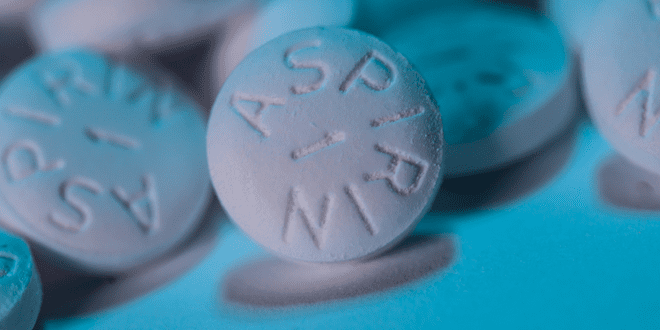Who hasn’t heard of aspirin, known to chemists and physicians as acetylsalicylic acid? A precursor to aspirin that was found in willow tree leaves has been prized for its health benefits for some 2,400 years.
Almost 170 years ago, a chemist named Charles Frédéric Gerhardt treated the medicine sodium salicylate with acetyl chloride to produce acetylsalicylic acid for the first time. Forty-four years later, the Bayer company began studying acetylsalicylic acid as a less-irritating replacement medication for common salicylate medicines. Aspirin, a nonsteroidal anti-inflammatory drug (NSAID), is today widely used to reduce fever, pain and inflammation, and if given soon after a heart attack, it is known to lower the risk of death.
It is one of the most commonly prescribed medications, but since it can cause an upset stomach, promotes blood loss in the stomach and may make asthma worse and overdoses can be fatal, it should not be regarded as “candy.”
The use of aspirin was very popular during the 1918 Spanish Influenza pandemic, several decades before in-vitro confirmation of its activity against RNA viruses. Studies showed that aspirin, in addition to its well-known anti-inflammatory effects, could modulate the innate and adaptive immune responses helping the human immune system battle some viral infections.
With this information in mind, Israeli researchers hypothesized that pre-infection treatment with low-dose aspirin (75mg) use might have a potential beneficial effect on COVID-19 susceptibility and disease duration. A joint team from Leumit Health Services (one of Israel’s four health maintenance organizations), Bar-Ilan University (BIU) in Ramat Gan (near Tel Aviv) and Barzilai Medical Center in Ashkelon conducted an observational epidemiological study, utilizing data from Leumit and published their findings in The FEBS Journal under the title “The use of aspirin for primary prevention of cardiovascular disease is associated with a lower likelihood of COVID‐19 infection.”
The researchers analyzed data of 10,477 people who had been tested for COVID-19 during the first COVID-19 wave in Israel from February 1, 2020 to June 30 last year. Aspirin use to avoid the development of cardiovascular diseases in healthy people was associated with a 29% lower likelihood of COVID-19 infection, as compared to aspirin non-users. The proportion of patients treated with aspirin was significantly lower among the COVID-19-positive individuals, as compared to the COVID-19-negative ones.
In addition, those who had been treated with aspirin were less likely to get infected with COVID-19 infection than those who were not. The team noted that the conversion time of SARS-CoV-2 PCR test results from positive to negative among aspirin-using COVID-positive patients was significantly shorter, and the disease duration was two to three days shorter, depending upon the patients’ pre-existing conditions.
Aspirin users were older, presented a lower body mass index, and showed higher prevalence of high blood pressure, diabetes and chronic obstructive pulmonary disease than the non-users of aspirin,
“This observation of the possible beneficial effect of low doses of aspirin on COVID-19 infection is preliminary but seems very promising,” says Prof. Eli Magen from Barzilai who led the study. “In conclusion,” they wrote, “we observed inverse association between the likelihood of COVID‐19 infection, disease duration and mortality and aspirin use for primary prevention.
Study principal investigator Dr. Eugene Merzon from Leumit stressed the importance of repeating the study results using larger samples and including patients from other hospitals and countries to confirm the results.
Dr. Milana Frenkel-Morgenstern, of BIU’s Azrieli Faculty of Medicine concluded: “The present study sought to better understand the potential favorable effects of aspirin in aiding the human immune system battle COVID-19. We intend to investigate a larger cohort of patients and in randomized clinical trials.”
The shortcode is missing a valid Donation Form ID attribute.




